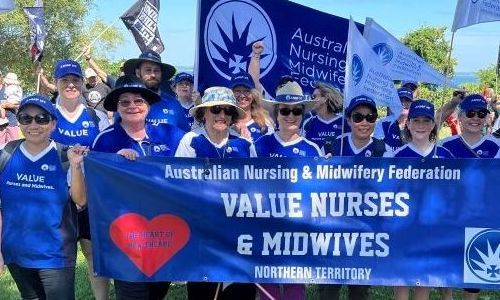The Budget announcement for Professional Indemnity Insurance (PII) cover for Privately Practising Midwives (PPM) providing low-risk homebirth.
Professional Indemnity Insurance (PII) for Privately Practising Midwives (PPM)
Under section 129 of the National Law, a registered health practitioner must not practise the health profession in which the practitioner is registered unless appropriate professional indemnity insurance arrangements are in force in relation to the practitioner’s practice of the profession.
From 1 July 2010, privately practising midwives have had access to Australian Government-supported PII and can purchase insurance from Medical Insurance Group Australia (MIGA).
The Government-supported insurance has not covered planned homebirth. There are a number of specific requirements that midwives must meet to qualify for this insurance cover. Under section 284 of the National Law, there is exemption from PII arrangements for midwives practising private midwifery who provide intrapartum services for women planning to have homebirths. This exemption has been going since 2010.
The Commonwealth Government has committed to ensuring midwives have insurance for planned homebirths and the exemption will cease 30th June 2025. There is currently consultation occurring to determine the arrangement for homebirth insurance. The definition of ‘low risk’ is not yet agreed to and a consultation process is being finalised. Transparency is unclear as to who will be consulted with, and it has been made known to the ANMF NT that key consumer stakeholders have not been included.
The ANMF NT supports women’s fundamental human rights and rights to self-determination and informed decision making without reprisal (or withdrawal of services). All women and families should have universal access to timely, appropriate, affordable and accessible health that meets their unique needs.
The current concerns are that an insurance product for homebirth (private) will be framed in particular medical/obstetric frames of risk which could limit women’s access to midwifery care in select locations and midwives legal ability to provide that care. This is deeply concerning as we know that women choosing to birth at home without any care has been rising exponentially as midwives in private practice are reducing in number for various reasons, onerous governance reporting and pressures being high in the list of reasons.
So, for example a medical or obstetric determination of risk may be high if women desire a vaginal birth after caesarean section. An insurance product must incorporate a midwives and women’s decision-making ability and not arbitrarily put women and midwives at risk by covering certain “types” of birthing choices and not others.
It is concerning that bureaucrats, medical or obstetric doctors and Commonwealth Chief Nurses (who are not midwives) are speaking on behalf of homebirth midwifery when none of them will have even attended a homebirth. Policy makers depend on obstetric expertise but the care of women in the home is solely in the realm of midwives with women. Midwives keep women safe – even those who avoid hospital due to trauma, and those considered high risk for any reason. Midwives are trusted and work with women leading a greater likelihood of women accessing health care they would otherwise not access. Midwives are also well placed to ensure timely and appropriate transfer to obstetric care if needed. Women have the most invested in being healthy and having a healthy baby. Women and families don’t make choices because they don’t recognise risk or care, but other things are felt as higher risk – loss of bodily autonomy for example.
The NSW Birth Trauma report that women experiencing childbirth and care as traumatic or violent is rising at alarming rates. We must address this at jurisdictional and Commonwealth levels. We must engage women and families in ways that make them feel safe and are safe.
We must find private homebirth indemnity insurance arrangements that do not limit women’s access to care. Women must not be forced to ‘consent’ to testing and diagnostic procedures to access models of care unless they want to. If women decline offered care or chose care outside of guidelines, they must not be affected in how they access care.
Privately Practicing Midwives around Australia are worried that there will be limitations to the care they can provide to certain women, when we know that with midwifery care women can build a trusting relationship which is more likely to result in them engaging with care and build pathways to services that they may need.
We must stand strong for our profession and the women and families we provide care to.
Authorised by C. Hatcher
ANMF NT Branch Secretary












